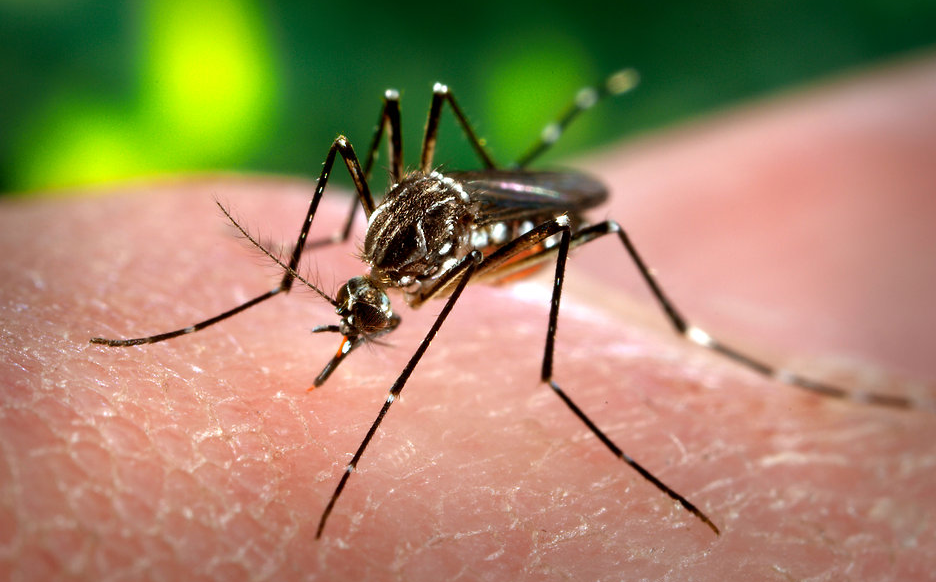Herbal formulations able to prevent and treat dengue fever: A scientific review
03/25/2018 / By Michelle Simmons

Herbal formulations could be potentially used as alternative options for preventing and treating dengue fever. A study published in the Journal of Ayurveda and Integrative Medicine looked at past studies on herbal treatments used in managing the disease in India.
Dengue is common in more than 100 countries, affecting more than 300 million people in the world every year. However, there are still no available specific target medicines against the infection. This creates panic in patients and puts pressure on clinicians who manage the disease, according to researchers. (Related: Dengue vaccine does NOT protect against the disease but actually puts you at HIGHER RISK of contracting it.)
Different plant-based formulations have been used to fight dengue. However, there are only a few validated scientific studies on these herbal medicines in India.
Authors of the study carried out a review of scientific literature on the herbal alternatives for fighting dengue viruses. All the three study methods and models – in vitro, in vivo, and clinical trials – were adopted by the researchers of the studies reviewed.
Using a literature search, they found 22 plants from India that were recommended for their use in fighting dengue. However, out of all these plants, only four have been tested scientifically and proven to be effective. The four plants include the neem tree (Azadirachta indica), papaya (Carica papaya), seaberry (Hippophae rhamnoides), and abuta (Cissampelos pareira), which all exhibited improvement in clinical symptoms and had a direct preventive effect against dengue virus. In particular, clinical trials with papaya showed an increase in platelet count, as well as faster recovery. Furthermore, the authors suggested that these plants may be studied further as potential agents for medications against dengue.
100% organic essential oil sets now available for your home and personal care, including Rosemary, Oregano, Eucalyptus, Tea Tree, Clary Sage and more, all 100% organic and laboratory tested for safety. A multitude of uses, from stress reduction to topical first aid. See the complete listing here, and help support this news site.
“There is a need to search more such herbal formulations, which are being practiced at local level, document properly and validate them scientifically to confirm efficacy, mechanistic action and safety, before use,” the review authors wrote.
More on dengue fever
Dengue fever is a disease brought by any one of four types of dengue viruses spread by mosquitoes that grow in and near houses of humans. The virus enters the mosquito when it bites a person infected with a dengue virus. Then, when the infected mosquito bites another person, the virus enters the bloodstream of that person.
People at risk of dengue fever are those who live in tropical and subtropical areas. It is most common in Southeast Asia and the western Pacific islands, but it has been rapidly increasing in Latin America and the Caribbean. Those who were previously infected with a dengue fever virus are also at increased risk of having severe symptoms if they get infected again.
Most people – children and teens, in particular – may not experience signs or symptoms during a mild case of dengue fever. However, when they do occur, they typically start four to seven days after getting bitten by an infected mosquito. Mild dengue fever causes a high fever, headache, muscle, bone, and joint pain, nausea, vomiting, pain behind the eyes, swollen glands, and rashes. Recovery from the disease takes a week or so.
If the symptoms worsen, it can become deadly. When blood vessels become damaged and leaky and platelet count in the bloodstream also drops, it can result in dengue hemorrhagic fever or dengue shock syndrome, which is a severe form of dengue fever. Other signs and symptoms of severe dengue include severe abdominal pain, persistent vomiting, bleeding gums or nose, blood in urine, stools, or vomit, bleeding under the skin that might look like bruising, difficult or rapid breathing, cold or clammy skin, fatigue, and irritability or restlessness.
To read more news stories and studies on alternative medicines, see AlternativeMedicine.news.
Sources include:
Tagged Under: alternative medicines, dengue, dengue fever, dengue treatment, good medicine, herbal medicine, herbal treatments, Herbs, medicinal herbs, Medicine, mosquitoes, natural medicine, research




















